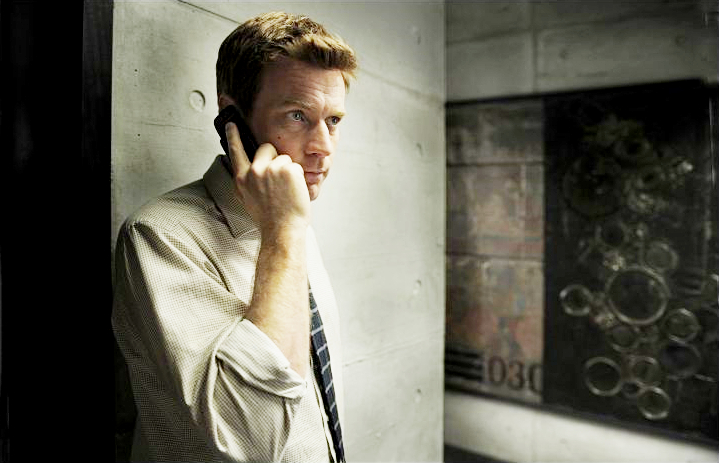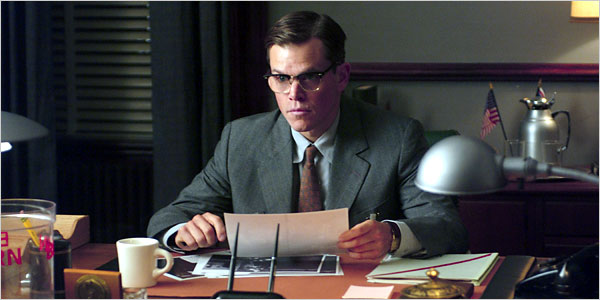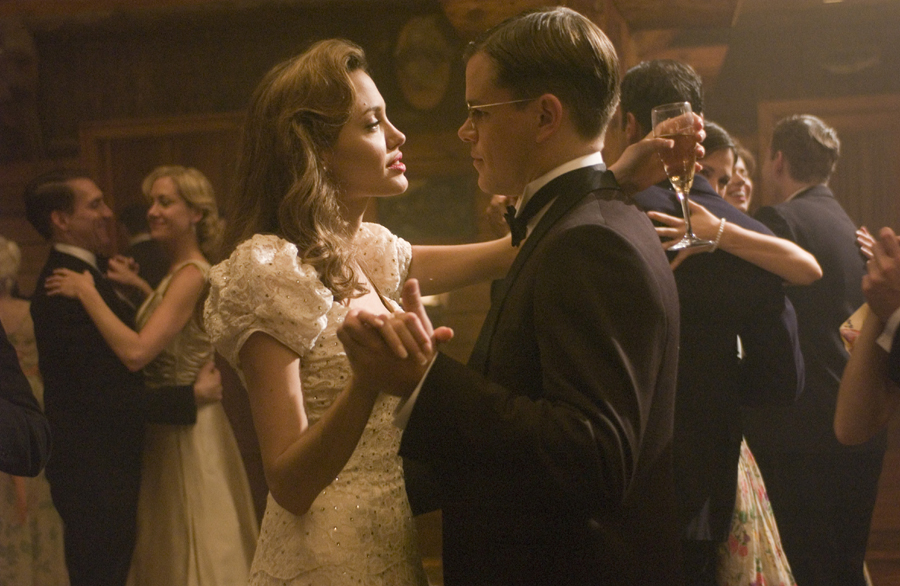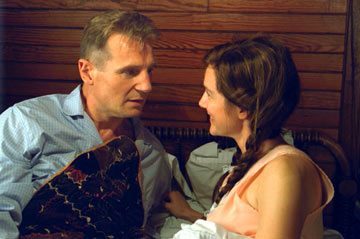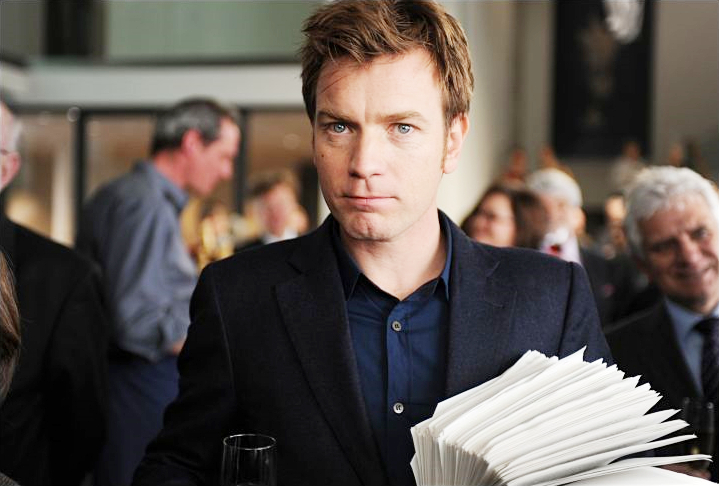
Tho’ I doubt it will get much favorable play in Tony Blair’s household, Roman Polanski’s The Ghost Writer, which I caught last Saturday, is a brisk and competently-made 70’s-style paranoia thriller that also manages to be subversively amusing for most of its run. If you enjoyed the “noir exercise” aspects of Scorsese’s Shutter Island, and you have no strong moral qualms about throwing money Polanski’s way these days, I’d say it’s definitely worth checking out. (Note: I briefly discussed my thoughts on Polanski’s criminality in my nod to The Pianist (#41) on the Best of the Oughts list two months ago. That’s still about all I have to say on that ugly subject.)
Like Shutter, The Ghost Writer is a highly cinematic thriller in-the-key-of-noir that probably works better as a mood piece than it does in terms of plot. (For that matter, once again we have a cast of ne’er-do-wells at a remote island off the coast of Massachusetts, acting suspiciously under gray, portentous skies.) The film is also, not to put too fine a point on it, a resounding eff-you to Tony Blair. Based on a 2007 book by Robert Harris (Fatherland, Enigma), it clearly sets it sights on the ex-PM for getting-in-deep with Dubya and subsequently greenlighting torture in the UK.
If that makes The Ghost Writer sound heavy or preachy, it isn’t, really. The torture and “Special Relationship” stuff forms the background and connective tissue of this particular 70’s-style conspiracy, yes. But the movie cares less about the details than its does just the existence of a nefarious plot at all. In other words, just like Marathon Man or Three Days of the Condor, most all of the political content here is really just a device to get Ewan MacGregor’s low-key, amiable, and boozy-but-talented “Ghost” slowly and inexorably in over his head…and increasingly having to look over his shoulder.
Here, unlike the last time we saw him, MacGregor’s scribe isn’t looking for “the Story” at first so much as a fat paycheck. So, when the ghostwriter for former British PM Adam Lang (Pierce Brosnan) washes up dead off the coast for America, he — after being talked into it by his unctuous agent (Jon Bernthal) — puts his name in the hat as a well-paid replacement, even though he doesn’t give a whit about politics. And after getting looked over by a gruff Haldeman-ish aide (James Belushi) and an obviously sleazebag lawyer (Timothy Hutton), he somehow, miraculously, ends up with the job.
But, be careful what you wish for: Within an hour of landing the gig, Ewan’s Ghost gets mugged on the street for carrying what appeared to be a copy of the current manuscript. (It was a ringer — Nihilists, dude.) Soon thereafter, he finds himself whisked away to Lang’s Island, where he spends his days with a distracted and often visibly angry ex-PM, the beautiful-but-distant missus (Olivia Williams, who I love, but she’s too young for the part), a sultry top assistant (Kim Cattrall, doing her thing), and more security than you can shake a stick at. And when Lang becomes the center of a huge media maelstrom, on account of revelations that he authorized illegal detentions and torture when he was prime minister, well all of a sudden Ewan’s Ghost finds himself trapped in a very well-oiled and dangerous Machine…
Speaking of ghosts in machines, I’ll concede I was probably more tickled by The Ghost Writer than a lot of people might be, just because this is a movie about my trade. Who knows? Maybe cops, lawyers, and doctors feel like this all the time. Still, his irritating penchant for reading everything out loud notwithstanding, when Ewan was puttering around the island on his bike and/or typing away in his schoolboy sweaters, I confess I felt a twinge of happiness that here was a thriller-type movie where I could actually see myself in the predicament. (Speaking of which, yes, there are a lot of dramatic licenses taken with the job of ghostwriting here, but you’re not going to see me complaining to Newsweek about it. That’s what movies do.)
But, all that being said, I think The Ghost Writer has enough of a sneaky sense of humor to it that it would’ve worked for me even without the j-o-b connection. For example, one running gag throughout is that, as per movies of this type, all sorts of shady operators desperately want their hands on Lang’s manuscript. But, like the vast majority of political memoirs in real life, this ghostwritten Maguffin is so platitudinous and vapid (“My years at Cambridge…”) that Ewan’s character can’t figure out why the hell anybody wants to go near it.
And, while the actual conspiracy here is even more implausible than the last turn in Shutter Island (and, again, doesn’t make much sense given what’s come before in the movie), I chuckled at the sheer screw-you audacity of it — You’ll know what I mean if you see it. So, all in all and despite its occasional goofy turns, I found The Ghost Writer a pretty fun afternoon at the movies. I just wish that one of the film’s other driving conceits — that the world will rise up and demand criminal accountability for Dubya-era torture — didn’t seem quite so far-fetched to me as it does these days.
